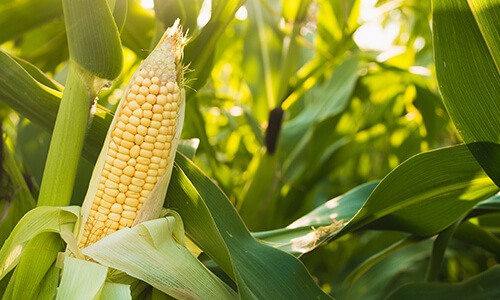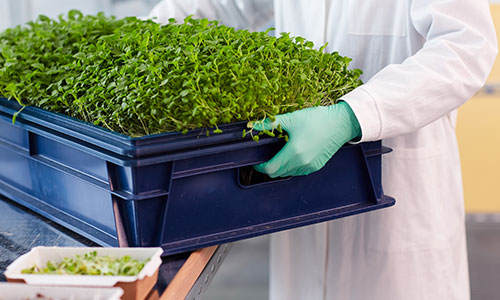What do we want to achieve?
CAPITALISE aims to exploit natural variation in core elements of photosynthesis to identify and develop new genetic resources and support tools.
These outcomes will then be used to improve the photosynthesis of core crop plants to increase yields. Our approach will form the basis for a science and innovation roadmap to kick start a targeted plant breeding programme for Europe 2030. Our specific objectives are:
Analyse the genetic, biochemical and physiological foundations and limits of the target traits to better understand how trait variation correlates with variation in photosynthesis at the leaf or canopy level.
Identify Quantitative Trait Loci (QTLs) and nucleotides (QTNs) and the identity of the genes underlying phenotypic variation for the lead MoVaP traits from germplasm collections.
Develop an innovative high-throughput phenotyping (HTP) programme to identify variation for target traits in germplasm, mapping populations, and mutants of barley, tomato and maize.
Phenotype genotypes with contrasting traits and test crosses grown in contrasting field sites to determine the impact on photosynthesis and crop yield of altered target traits.
Develop a toolkit and database to integrate phenotypic and non-redundant genotypic information, and to collate and compare new genetic, biochemical and physiological data for each crop.
Undertake relevant stakeholder and public engagement in series of consultations and cooperative actions to ensure that an ethical, responsible programme is designed and implemented taking account of citizen concerns about gene-editing as a new plant breeding technique.
Socio-economic and environmental studies of the crop breeding technologies will ensure the strategy developed is based on cost effective and sustainable technologies and considers citizens viewpoints.
Develop a science and innovation roadmap to translate the CAPITALISE strategy and results towards demonstration and industry crop development programmes in 2030.
Deliver a Plant Literacy Training programme to transfer knowledge between partners, and educate the public on photosynthesis, crop breeding and the next green revolution.


